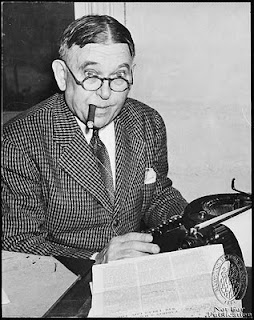The View from Afar
Writings by retired newspaper publisher Stephen Waters

The fabric of society: 1. Educating individuals
fas01of14 Rome (NY) Sentinel 2015-10-03 October 3, 2015
[Article 1 of 14, published in the Rome (NY) Daily Sentinel 2015-10-03: Future articles will address how to inoculate students to defend society with principles they revalidate for themselves. We just don’t have the habit.]
Students are eager to learn. Too bad they find little traction in many everyday lessons. The themes offered fail to guide and motivate them. It need not be that way. Threads of wisdom run throughout patterns drawn from human experience.
“College and career ready” might seem a driving force for political adults, but students have more interest in dealing with the simple daily problems of living: what can I know, how should I behave, and how should I interact with others.
Philosophy used to deal with those questions, until schooling became the province of government. Socrates was killed in 399 BC by the democratic majority in Athens for daring to ask, “Does an education belong to the individual or to the government?”
Does the majority get to decide simply because it is the majority? Or should education arm individuals to defend against intellectual assault from any quarter, including government and its scholastic view.
Government has decided to hobble students to make them “good citizens” with “good” defined by elite officials. When not an individual accomplishment, but a social good, molding people to be docile and compliant falls short of education.
“College and career ready” is not enough. Absent proper society, Science, Technology, Engineering, and Math (STEM) leave graduates no secure environment in which to practice. If one wants to drive a car, it is easy to see why STEM is insufficient:
If you study the history of cars — that in 1885 Karl Benz invented the motorcar or that the economics of cars — that Henry Ford’s division of labor made automobiles affordable even to his workforce, do you know enough to drive? If you study physics or chemistry of cars — that rapid oxidation of complex hydrocarbons releases energy against a piston, or study the language, math, or art of cars, do you know enough to drive? If you study teaching techniques — that graphic organizers and testing rubrics improve the success of studying cars — or critical thinking — that meta-cognitive strategies increase one’s understanding of cars, do you know enough to drive?
At the end of the day — through layers of educators, administrators, certifications, mandated curricula, standardized testing, whole language learning, classroom directives, contract provisions, political correctness, and lunch menu restrictions, do you know enough to drive?
The car you need to learn to drive is you. Traditional courses like History, Economics, and Political Theory touch on those issues, but the question that gives traction to individuals and society is: Can you recall an instance in your personal past experience when you thought you were correct and later discovered to your regret that you were mistaken?
Regardless of age, religion, culture, upbringing, or education, that question nudges one to participate in society with others.
Pushing extraneous material, authorities have squeezed out of the curriculum useful patterns of experience. Patterns help recognize when a “social good” is more likely government gone bad, legitimized by victims gulled to become a voting majority.
Rather than learn the hazards of democracy, 2nd Graders learn by rote that democracy is good, majority rules, and democracy legitimizes government action. How convenient. In a time as politicized as ours, neither Leftists nor Rightists should indoctrinate children.
Present day teachers seldom object because colleges taught them how to teach, but not to revalidate what is taught. Weak curricula leave to chance what students need to know to plan their best future.
As Dorothy Sayers, the 1930s mystery writer and medievalist said, “For we let our young men and women go out unarmed, in a day when armor was never so necessary. By teaching them all to read, we have left them at the mercy of the printed word. By the invention of the film and the radio, we have made certain that no aversion to reading shall secure them from the incessant battery of words, words, words. They do not know what the words mean; they do not know how to ward them off or blunt their edge or fling them back; they are a prey to words in their emotions instead of being the masters of them in their intellects.” [1]
Teaching subjects alone has left us unable to recognize what schooling has become, and certainly unable to resist the darkening trend. But all is not lost. Students develop character as they deduce behavior that is positive, instructive, and constructive. Practical wisdoms help us sort out where great thinkers made mistakes and to understand why, within the limits of their time, they might have done so. Traction comes from self-interest.
Proper education offers processes kids understand, admire, and wish to emulate in a deeper way.
[The next article examines how individuals create society.]
[1] Sayers, Dorothy. “Lost Tools of Learning.” Web. 17 Jan 2010.http://www.gbt.org/text/sayers.html Link.

Stephen B. Waters
In early 2021, with 46 years in the business, I retired as publisher of the Rome (NY) Daily Sentinel
After five generations of family ownership, despite an unsettled economy, we keep on. We understand that although we may own the newspaper, we hold it in stewardship for the community.
Across my career, so many other small newspapers were purchased by media chains, large newspapers sold their integrity, and broadcast news outfits fell back on superficial entertainment.
They put journalism in this country at risk. The best antidote is for individual readers to arm themselves to recognize the danger to their community, culture, and society itself.
Index
-
 sbwTweet
sbwTweet
Mostly Links and Retweets -
 Essays
Essays
Writings across time -
 Editorials and columns
Editorials and columns
For the newspaper -
 Presentations
Presentations
Community discourse -
 Books
Books
Published and available -
 Audiobooks
Audiobooks
Readings and more